Celebrating over 100 years of the Desautels Faculty of Management
1900-1919
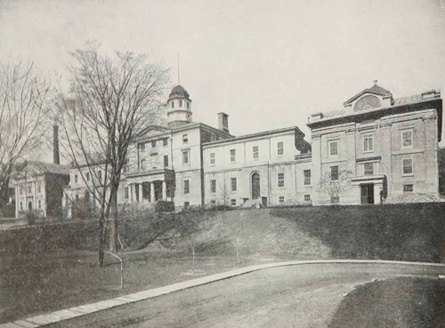
Beginnings of Management education at McGill University
Management education began at McGill University in 1906. Originally housed in the Faculty of Arts, the newly formed Department of Commerce offered a two-year diploma course, training future business professionals, like accountants and clerks. With a growing interest in commerce programs, the department was rebranded the School of Commerce in 1912, welcoming its first cohort of BCom students the same year, with their first class walking across the graduation stage in 1915.
1920 - 1939
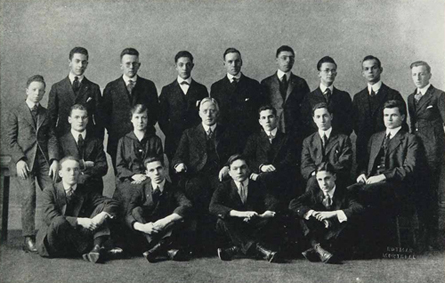
The McGill School of Commerce is born
A growing interest in management education lent itself to the formation of the McGill School of Commerce and the introduction of the first BCom cohort. Unbound by the restraints of its governing Faculty of Arts, the School of Commerce was able to carve its own path within the University. With a spike in students and a renewed enthusiasm for business, members of the School of Commerce entered the 1920s with the hopes of establishing itself as one of the most important branches of McGill.
1940 – 1949
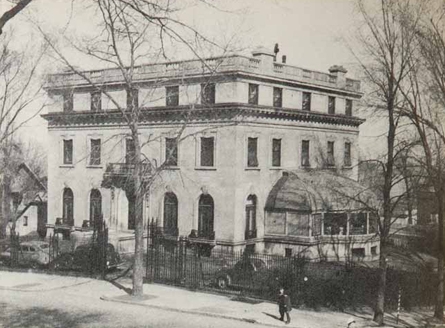
The School of Commerce takes up new quarters with a growing student body
An expanding student body led to the School of Commerce taking up quarters in the Duggan House and Purvis Hall. Located at the base of Mont Royal on McTavish Street, the two historic buildings were connected through an underground passage and housed the Faculty until its move to Bronfman Building in 1972.
With a growing interest in management training for established professionals, the 1940s also saw the introduction of executive-level courses, including a popular non-credit certificate program that would later become the McGill Mini-MBA.
1950 - 1959
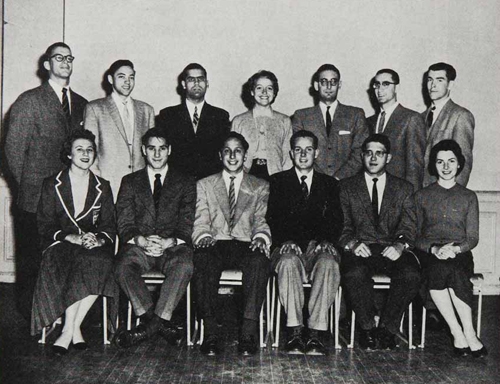
A decade of the Commerce Undergraduate Society stimulating the traditional college spirit
Since its development in 1920, the Commerce Undergraduate Society continued to stimulate the traditional college spirit among members of the school. Built with the intention to maintain complete autonomy and self-government over student proceedings, the CUS sought to strengthen the permanence and success of its student cohort. The CUS initiated extra-curricular activities, industrial and financial tours and networking events with one goal: to broaden the students’ scope for employment by giving them a competitive edge with industry know-how.
1960 - 1969
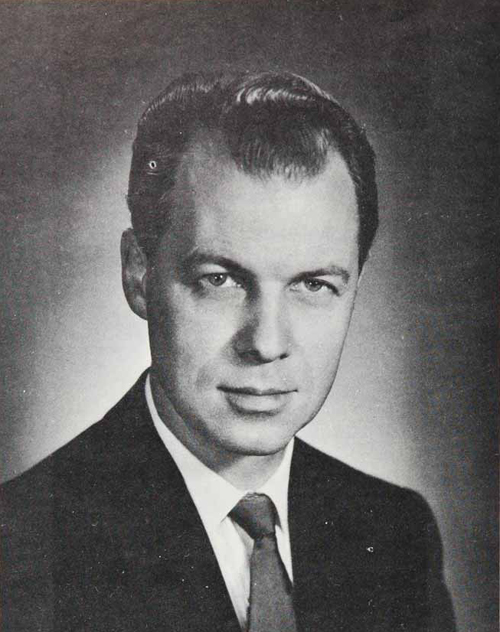
McGill’s Graduate School of Business Administration welcomes its first MBA classes
During the 1960s, the School of Commerce cemented its impact at McGill University. Under Donald E. Armstrong’s helm, the School of Commerce opened its doors to the new Graduate School of Business Administration and welcomed its first cohort of Master of Business Administration (MBA) students. With a growing range of programs, the School of Commerce and Graduate School of Business Administration came together to establish the new Faculty of Management at McGill University.
1970 - 1979
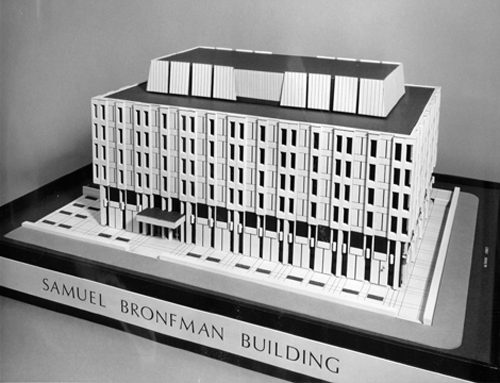
From the Victorian splendour of Purvis Hall to the modern Samuel Bronfman Building
The Faculty of Management moved into its new home in the Samuel Bronfman Building on Sherbrooke Street in the heart of downtown Montreal in 1972. A generous donation from the Bronfman family, of Seagram Corporation fame, made the construction of the building possible. The Faculty is still housed in the storied halls of the Bronfman Building. Four years later, the Faculty partnered with Concordia University to establish a joint PhD program in management. Today, it is a joint program that brings together Quebec’s four leading universities: HEC-Montreal, Concordia, UQAM, and McGill.
1980 - 1989
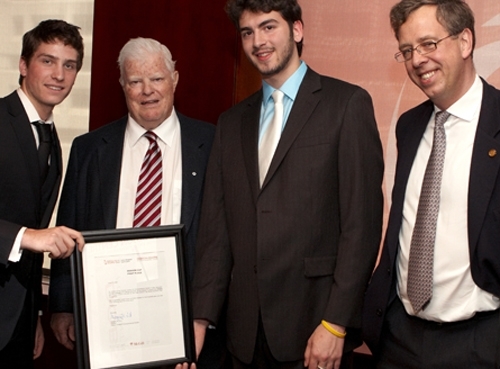
Business & entrepreneurship research at the forefront through creation of new centres
The creation of new centres shaped the 1980s at the Faculty of Management. Bookmarked with the creation of the Management Science Research Centre in 1980 and the Centre for Strategy Studies in Organizations in 1989, the decade accelerated research excellence in the Faculty. A landmark donation from the John Dobson Foundation in 1988 established the McGill Dobson Centre for Entrepreneurship to drive innovation, providing a launchpad for budding entrepreneurs at McGill University.
1990 - 1999
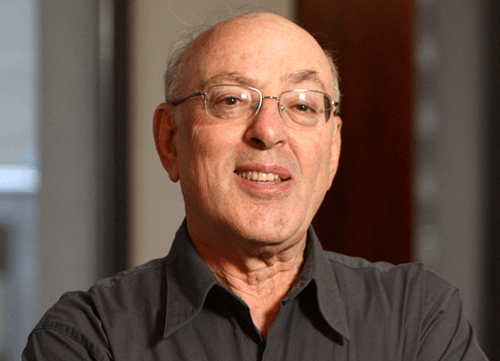
Faculty cements its reputation as one of Canada’s most internationally active management schools
A growing Faculty of Management continued to strengthen McGill’s place on the international map. In 1991, the Faculty brought together leading business owners in Canada and across the world to serve on the inaugural International Advisory Board to leverage the knowledge, insight and experience of a global network of leaders. The decade also saw the creation of the International Masters Program for Managers (IMPM) and the MBA Japan program, expanding the Faculty’s impact to the global arena.
2000 - 2014
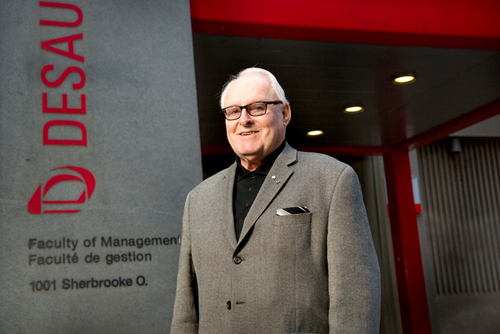
Faculty named the Desautels Faculty of Management after a $22M gift from Dr. Marcel Desautels
In 2005, French Canadian business leader Marcel Desautels transformed management education at McGill University. Desautels cemented his legacy at McGill with a record-breaking gift of $22 million. Renamed in honour of his extraordinary generosity, the Desautels Faculty of Management has seen exponential growth and opportunity through the continued philanthropy and support from the proud French Canadian. An additional $10-million gift and a vision to develop an integrated approach to management brought to life the Faculty’s new Marcel Desautels Institute for Integrated Management in 2008.
2015 - Present
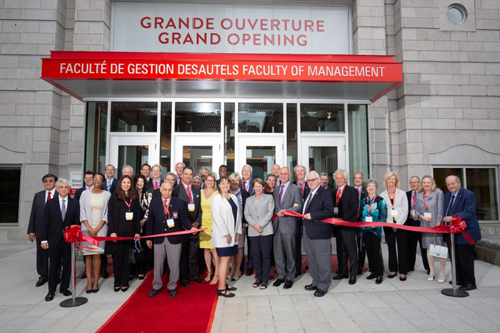
Made for Tomorrow
Before McGill turns 200, the Desautels Faculty celebrated exciting milestones of its own: 50 years of MBA success in 2015 and 100 years of BCom impact in 2020. In between, the Faculty continued to reach new heights with the launch of the highly ranked specialized masters programs, the Bensadoun School of Retail Management, a new thought leadership platform called Delve, and the free online McGill Personal Finance Essentials course. The Faculty also expanded its physical footprint with the opening of the Donald E. Armstrong building to house the MBA and specialized masters programs, and created a new Faculty role in equity, diversity, and inclusion
